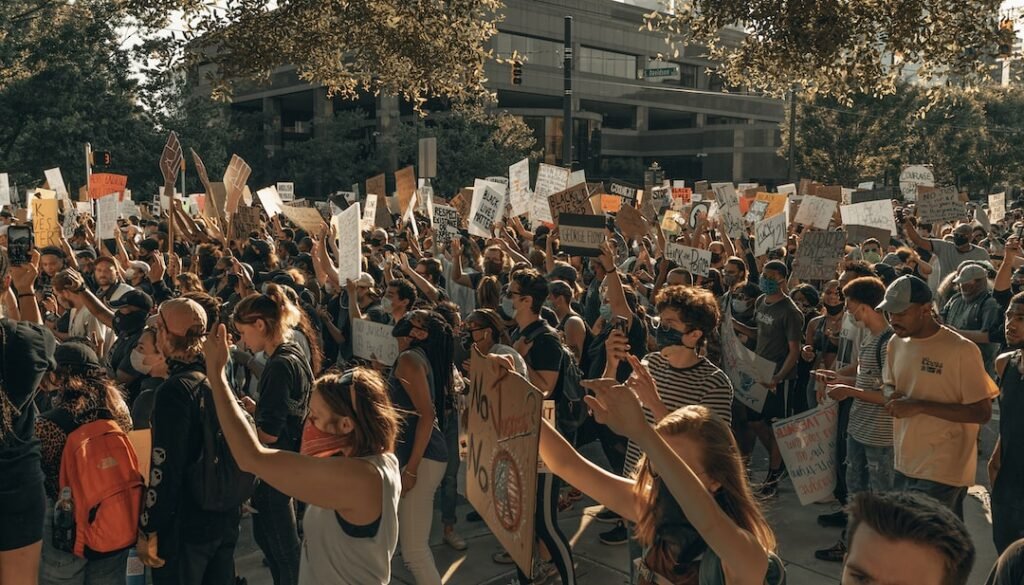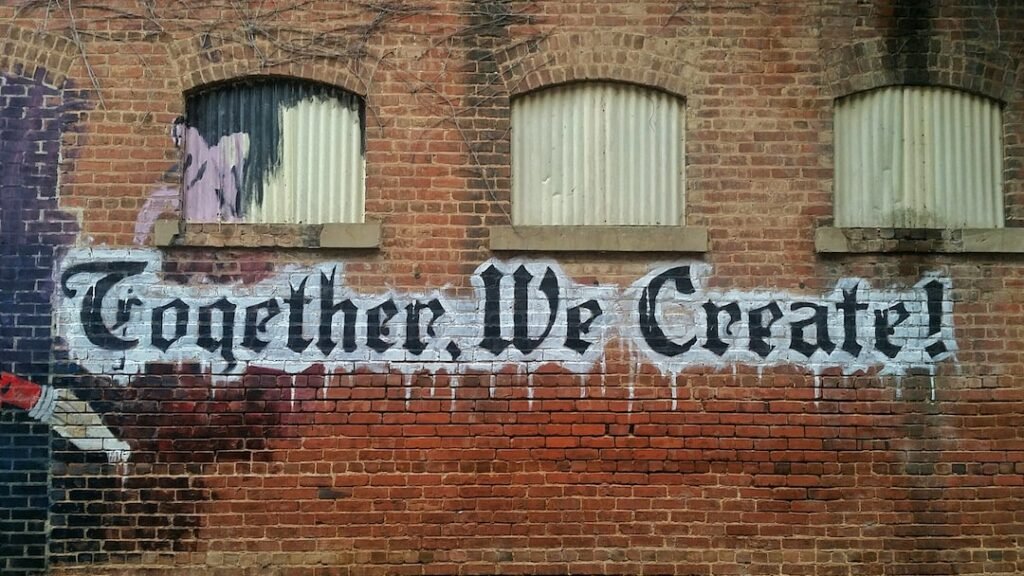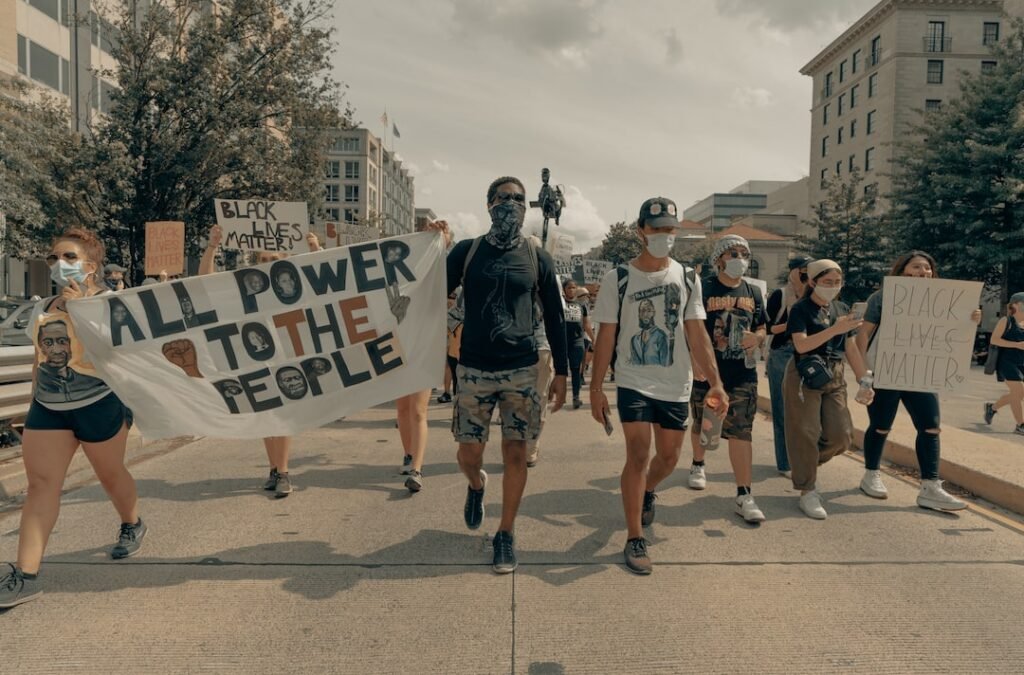
Table of Contents
Introduction
Faith has long been a source of strength and courage for those seeking justice and social change. Faith communities have been an integral part of the struggle for social justice, often providing a platform for activists to spread their message and giving people of different backgrounds a place to gather and work towards a common goal. But what is the role of faith communities in social justice and activism?
This article seeks to answer this question by exploring the role of faith communities in social justice and activism. We will first provide an overview of the role of faith communities in social justice and activism, then define what faith communities are. After that, we will look at how faith communities have been involved in social justice and activism, the benefits of their involvement, and how faith has been a driving force in social activism and politics.
Faith communities are often seen as a unifying force that brings people from different backgrounds together to fight for the common good. Faith communities are groups of people who share the same faith, such as Christianity, Islam, Judaism, Hinduism, Buddhism, and other religions. These communities often have a shared set of beliefs and practices that guide their members and direct their actions.
Faith communities have been involved in social justice and activism for centuries, often providing a platform for the voiceless to be heard. From civil rights to environmental activism, faith communities have been at the forefront of social justice issues, advocating for the oppressed and working to ensure a more equitable society.
Faith communities have also been involved in activism, helping to shape public opinion and sway policies. From public protests to grassroots movements, faith communities have been instrumental in organizing and inspiring people to work towards a common cause.
Finally, faith has played a major role in social activism and politics. From national campaigns to grassroots initiatives, faith has been a driving force in motivating people to fight for social justice and equality. Faith has also been a powerful tool in mobilizing people to participate in the political process.
This article will explore the role of faith communities in social justice and activism, and how faith has been a driving force in both. We will look at how faith communities have been involved in social justice, the benefits of their involvement, and how faith has been a driving force in social activism and politics.

The Role of Faith Communities in Social Justice
Faith communities and social justice are both terms that many people associate with each other. Faith communities are groups of people who share a common belief and practice common spiritual practices. Social justice is defined as the fair and just inclusion of all people within a society. For centuries, faith communities have played a crucial role in the advancement of social justice around the world.
Faith communities have long been involved in social justice campaigns. Many faith communities have been at the forefront in championing causes such as civil rights, women’s rights, human rights, immigration, and poverty. Faith communities often provide moral and religious guidance to those who are engaged in social justice campaigns. Additionally, faith communities provide an effective platform for mobilizing people to support social justice initiatives.
Examples of how faith communities have influenced social justice include the influence of the Catholic Church in the civil rights movement of the 1960s. The Catholic Church provided support for activists by advocating for civil rights legislation, providing financial assistance, and organizing marches and rallies. Similarly, in the United States, the African American church has been a driving force behind the civil rights movement. African American churches have provided spiritual guidance and support to the African American community in the face of racial injustice.
Faith communities have also been involved in the fight against poverty. The Catholic Church has long been at the forefront of anti-poverty initiatives, such as providing aid to those in need. Similarly, the Catholic Church in Latin America has championed the cause of the poor and marginalized. Through their advocacy and outreach, faith communities have made a significant impact in the fight against poverty.
The involvement of faith communities in social justice has numerous benefits. Faith communities provide a safe and supportive environment for social justice initiatives. Additionally, faith communities provide a platform for individuals to express their beliefs and to mobilize support for social justice causes. Finally, faith communities can provide spiritual guidance and support to those who are engaged in social justice campaigns.
In summary, faith communities have a long history of involvement in social justice campaigns. Faith communities have provided moral and religious guidance, as well as a platform for mobilizing people in support of social justice initiatives. Examples of how faith communities have influenced social justice include the influence of the Catholic Church in the civil rights movement, the role of the African American church, and the fight against poverty. The involvement of faith communities in social justice has numerous benefits, including providing a safe and supportive environment, a platform for expressing beliefs, and spiritual guidance.

The Role of Faith Communities in Activism
In the pursuit of social justice, faith communities have also taken an active role in activism. Activism, by definition, is the practice of taking direct action in support of or opposition to a cause. Faith communities have done this in a variety of ways, ranging from inspiring and leading protests and marches to providing financial and material support.
One of the most visible examples of faith-based activism is the civil rights movement of the 1960s. Religious leaders like Martin Luther King, Jr., were at the forefront of the movement, leading protests and marches in the name of justice and equality. Faith communities provided a vital source of support, from providing moral and spiritual guidance to assisting with fundraising and logistics. Faith-based organizations such as the Southern Christian Leadership Conference (SCLC) and the Student Nonviolent Coordinating Committee (SNCC) were instrumental in organizing the movement and bringing about positive change.
In more recent years, faith-based organizations have continued to play a role in activism. For example, faith-based organizations have been actively involved in protests against police brutality, particularly those involving Black Americans. They have also been active in advocating for greater access to healthcare and education. In addition, faith-based organizations have been at the forefront of the fight for human rights, as well as the movements for environmental justice and immigration reform.
The involvement of faith-based organizations in activism brings many benefits. For one, faith-based organizations can provide an important moral and spiritual foundation to activism. By drawing on the values of faith, these organizations can help people stand firm in the face of injustice. They can also provide an emotional and spiritual support system for activists, helping to sustain them through difficult times.
In addition, faith-based organizations are often well-connected in their communities. This gives them the opportunity to organize and engage their networks to support a particular cause, from providing financial support to spreading the word about an issue. This type of engagement can be particularly beneficial for more marginalized communities, which often lack the resources or visibility to get their message out.
Finally, faith-based organizations can help bring about positive change by building bridges across different communities. For example, faith-based organizations have been successful in bringing people of different religious and political persuasions together in support of a cause. This can be particularly helpful in cases where there is disagreement or tension between different groups. By working together, faith-based organizations can help create a more unified and effective movement for social justice.
Overall, faith-based organizations have been and continue to be an important part of social activism. By drawing on their spiritual values and community connections, they have been able to help bring about positive change and fight for justice. As the world continues to face pressing social issues, faith-based organizations will no doubt be key partners in the fight for justice and equality.

Faith in Social Activism
The power of faith to rally people towards a common cause is well known. In the pursuit of social justice, faith-based organizations have been at the forefront of movements for change throughout history. Faith communities have provided a moral and spiritual backbone for social activists and have helped to bring about significant social, economic and political changes.
In more recent times, faith communities have been heavily involved in campaigns for social justice and activism, from the Civil Rights Movement of the 1960s to the current push for human rights. Faith communities have provided a platform for marginalized voices to be heard and a support system for those seeking social justice. For example, religious organizations such as Sojourners, the NAACP, the Southern Christian Leadership Conference, and the United Church of Christ have all been instrumental in advocating for the rights of minorities and the disadvantaged.
Faith communities have also provided essential resources to social activists. They have provided food, shelter, and other resources to activists in need. In addition, they have hosted fundraising events, organized marches and protests, provided legal assistance, and even given sanctuary to activists in need. Faith communities have been instrumental in providing the support and resources needed to further the cause of social justice.
Moreover, faith communities have used their outreach and resources to spread awareness of social justice issues. Through interfaith dialogues, sermons, and outreach programs, faith communities have spread the message of social justice and encouraged people to take action. By using their connections to the larger faith community, faith organizations have been able to build momentum and garner support for social causes.
Faith has also been an integral part of social activism. Through religious texts, sermons, and prayer, faith communities have provided the moral and spiritual motivation and inspiration to stand up for what is right. Through faith, activists have found strength in the face of adversity and hope for a better future. Faith has also been the foundation for solidarity and cooperation among social activists.
The role of faith communities in social justice and activism cannot be overstated. Faith communities have provided essential resources, support, outreach, and moral motivation to social activists all around the world. From civil rights leaders to human rights activists, faith communities have been instrumental in creating positive social change.

Faith in Politics
The role of faith in politics has been evident throughout history, and is often credited with inspiring social change and progress. From the civil rights movement of the 1960s to current protests against systemic racism and police brutality, faith has been used as a powerful tool to challenge injustice and further the cause of justice and equality.
The civil rights movement of the 1960s was a pivotal moment of social transformation and a major turning point in American history. The movement was driven by the faith of those who sought to end segregation, racism, and inequality. Martin Luther King Jr., initially a Baptist minister, used faith to draw attention to the struggles of African Americans, and to call for action and change. He famously said: “Faith is taking the first step even when you don’t see the whole staircase.”
Throughout history, faith has also been used as a powerful tool to challenge theocracy and oppressive regimes. In the Middle East, for example, religious leaders have used faith to stand up against dictators and call for democracy and freedom. In the United States, faith has been used to challenge racism and hate.
Faith is also a powerful tool when it comes to political campaigns. Candidates often use faith as a way to connect with voters. They use faith to show that they are compassionate and understanding of people’s beliefs and values and that they are willing to fight for social justice. In 2020, for example, faith was used as a way to rally the electorate to vote for candidates who supported progressive values.
Faith also plays a role in political decision-making. Candidates running for office must consider the faith of their constituents and be aware of the issues that are important to them. They must also be willing to work with faith communities and organizations to find solutions that reflect the values and beliefs of their constituents.
In conclusion, faith has been an important factor in social justice and activism for centuries. From the civil rights movement of the 1960s to the current protests against systemic racism and police brutality, faith has been used as a powerful tool to further the cause of justice and equality. It has also played a role in political campaigns, decision-making, and in challenging oppressive regimes. Faith is a powerful tool that can be used to bring about positive change and progress.

Conclusion
The role of faith communities in social justice and activism is undeniably important and should not be understated. Faith communities have been instrumental in creating positive change, and their involvement in social justice and activism has made a lasting impact on society. Faith communities have the power to bring together people of different backgrounds and ideologies to create a better future.
Faith plays an integral role in social activism, and it has been used to mobilize individuals to address social ills and injustices. Faith has been used to encourage people to work together to create positive and lasting change in their communities. Furthermore, faith has helped to bring people of different backgrounds and ideologies together to work towards a common goal.
Faith has also played an important role in politics, and it has been used to influence policy and legislation. Faith has been used to advocate for social justice and to bring attention to issues of inequality and oppression. Faith has also been used to encourage people to come together and to stand up for what is right and just.
In conclusion, faith communities have had a profound impact on social justice and activism. Their involvement has been integral in creating positive change in society and in enabling individuals to create a better future. Faith has been used to bring people together and to stand up for what is right and just. Faith communities have the power to create a better future for everyone, and it is important to recognize their role and contribution to social justice and activism.
Join the Realty Banker Network and stay ahead of the competition. Connect with us on
Youtube, Facebook, TikTok, Instagram and Twitter. We hope to see you there.

